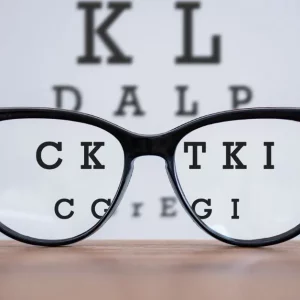If you have ever experienced sensory overload after brain injury, you are not alone. Hypersensitivity to stimulation often occurs after TBI because your brain is scrambling to reorganize and stabilize itself. As a result, even just a little bit of stimulation may overwhelm the brain.
This article will explore the causes of overstimulation after brain injury and share some effective ways to cope.
Causes of Sensory Overload After Brain Injury
Sensory overload is also referred to as sensory defensiveness and describes “a tendency to react negatively or with alarm to sensory input that is generally considered harmless or non-irritating.”
Many factors can contribute to sensory overload after brain injury. For some, the brain injury occurs in the part of the brain responsible for sensory processing. Because these neural pathways become disrupted, hypersensitivity to stimulation may occur.
Following a TBI, the brain devotes most of its energy towards healing and stabilization. Therefore, even the slightest stimulation may overstimulate the brain.
Additionally, some individuals may struggle with attention and concentration after brain injury. So if more than one thing is happening at once, the brain may become easily overwhelmed. Essentially, an over-responsiveness of the nervous system to stimuli is occurring.
The stress, pain, and fatigue that often occur after TBI can intensify the senses and put individuals on edge. Things that they would have been able to tune out before can now bother them and lead to sensory overload.
Common triggers of sensory overload include:
- Background noise
- Itchy clothing
- Unexpected touch
- Bright lights
- Large crowds
- Sudden movement
- Certain smells
- Excess noise
In the following section, we’ll discuss how to identify symptoms of sensory overload after brain injury.
Symptoms of Overstimulation After Brain Injury
Sensory overload activates the body’s defense mechanism, otherwise known as its “fight or flight” response. As a result, each person experiences overstimulation a little differently, depending on how they react to stress.
Common symptoms of sensory overload include:
- Difficulty focusing
- Restlessness
- Aggressiveness
- Irritability/ agitation
- Dissociating/ shutting down
- Crying
Sensory overload after a brain injury may interfere with one’s ability to engage in daily activities and negatively affect one’s quality of life.
It’s suggested that sensory defensiveness may be a contributing factor to anxiety, primarily because one’s perception of control is lacking. As a result, individuals may display avoidant and fearful behavior, as well as poor sleep quality.
Social and physical withdrawal, isolation, and decreased sensation-seeking due to increased anxiety after TBI may also contribute to the development of depression.
In the following section, we’ll discuss various tips that can help individuals with hypersensitivity to stimulation cope.
Coping Methods for Sensory Overload After Brain Injury
As previously mentioned, everyone experiences overstimulation after brain injury differently. Therefore, depending on the individual, some coping mechanisms may be more effective than others.
The following are some general suggestions that may help you avoid sensory overload after brain injury.
Rest Before Heading Out
Getting plenty of rest helps your brain function optimally. A short nap may help regulate stress hormones to promote better mood, concentration, and problem-solving.
Plan and Prepare Ahead
If you know you’re about to enter a situation where you may encounter a lot of sensory input, it’s essential to prepare ahead of time.
For example, you can shop earlier in the day when there are typically fewer people around.
Likewise, carrying around a set of noise-canceling headphones may help you calm down in loud environments.
Know Your Limits
Overcoming avoidant behaviors due to sensory overload is complex and takes time. Learn to monitor yourself so you can tell when things are becoming too much.
It helps to come up with a safe word you can use with family and friends so they can know when you’re getting overwhelmed.
Gradually Increase Exposure
Gradually increasing your exposure to stimuli is key to developing your tolerance.
Starting simple is ideal. For example, try hanging out in a quiet environment like a library before exposing yourself to a more hectic environment like a mall.
Only increase exposure when you feel comfortable. It should feel challenging, but not overwhelming.
Up next, we’ll discuss how a sensory diet can help individuals gradually overcome hypersensitivity to stimulation.
Managing Overstimulation After Brain Injury with a Sensory Diet
Generally, individuals that experience sensory overload after brain injury are referred to an occupational therapist. Often, OTs incorporate a sensory diet to help individuals manage hypersensitivity to stimulation.
Sensory diets are not really diets in the traditional sense. Rather, they are routines created by you and your healthcare professional to help you receive beneficial sensory input throughout the day. The goal is to slowly increase your tolerance to stimuli.
Some examples of sensory diet routines include:
- Using weighted blankets
- Massage
- Letting warm water flow over your hands
- Chewing gum or drinking a thick liquid
- Eating crunchy foods
- Chores that involve the whole body, such as laundry
- Deep breathing
The brain is extremely adaptive and by promoting specific skills through repetitive stimulation, individuals can promote neuroadaptive changes. Sensory diets are effective because they gradually familiarize the brain with stimulation, which helps it become better at processing sensory information.
Overcoming Sensory Overload After TBI
Many individuals experience overstimulation after brain injury. Fortunately, there are effective ways to reduce hypersensitivity so that you can regain control over your life.
We hope this article has helped you understand why sensory overload occurs and how to effectively manage it.










